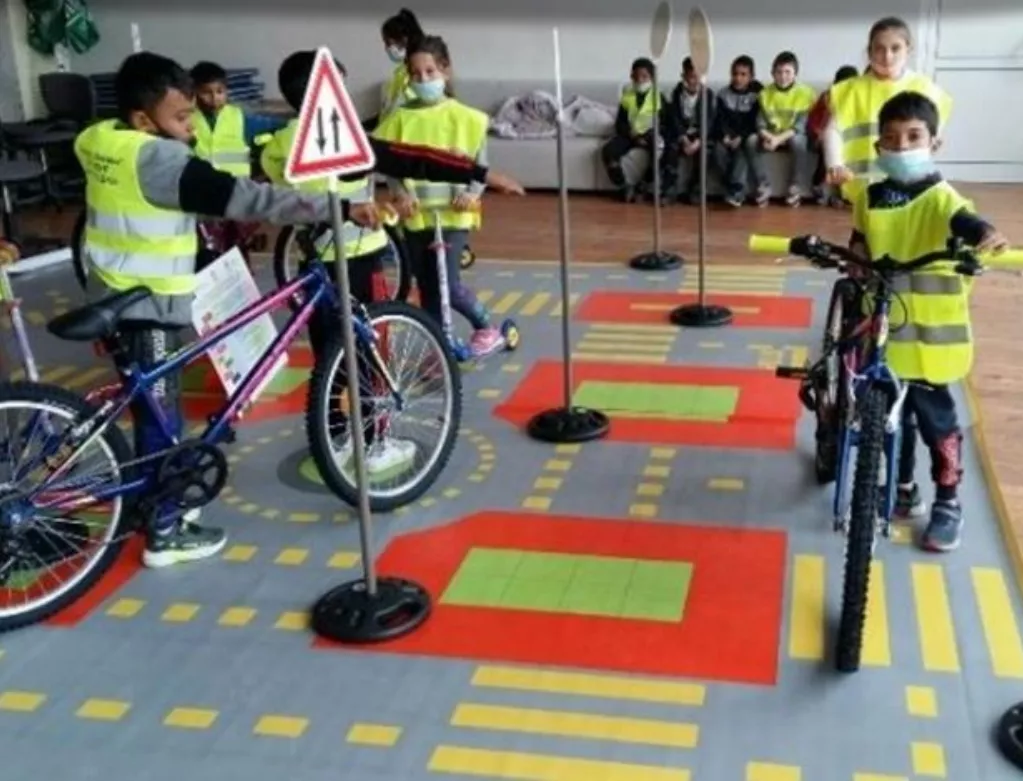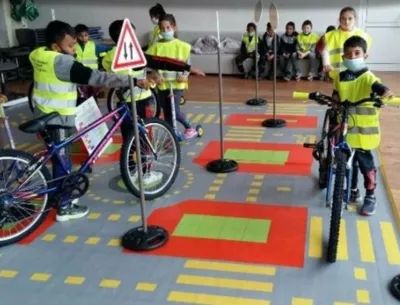Summary
The ‘DIRECTIONS’ project promoted the social inclusion of children and students from marginalised groups in three rural areas in Tundzha municipality, reducing the number of students not covered by the educational system, school dropouts and early school leavers.
This was achieved through many activities, including the creation of parent clubs, real and virtual reading rooms, career guidance and road safety workshops, summer academies on local traditions, selection of school collaborators, and inter-school exchanges to share successful practices in supporting the social inclusion of students from marginalised groups.
These activities involved all members of the school community, including students, parents and educational specialists, and benefitted almost 200 students from ethnic minorities.
Results
The project has been instrumental in fostering integration and facilitating effective communication within the entire school community. The primary objective was to enhance students' educational outcomes, boost their motivation to pursue further education, and significantly reduce the risk of early dropout from the educational system.
Notable achievements include the active participation of a total of 195 children, students and young people from marginalised communities, including the Roma community, in various educational integration and re-integration measures.
The project successfully integrated 174 children, students and young people from ethnic minorities into the formal education system. Additionally, 30 parents have become actively involved in supporting educational integration efforts.
Resources
Documents
Context
The ESF project ‘DIRECTIONS – Interaction of the School Community for Full Integration, Equal Access to Quality Education, and Successful Future Achievement of Students from Small Agglomerations’ ran from 2020 to 2022. It aimed to address key rural issues and challenges in Tundzha municipality, part of the Yambol region, in Bulgaria. These challenges included limited opportunities for child-rearing and a lack of parental practices that support the socialisation of children from the Roma ethnic minority. Additionally, there were concerns about unexcused school absences and the potential risk of students dropping out of the education system.
Objectives
This initiative aimed to promote social inclusion for children and students from marginalised groups by enhancingtheir access to quality education. Its specific objective was to improve the overall quality of school education within three small settlements in Tundzha municipality.
The project focused on harnessing best practices in schools to address educational priorities, such as ensuring equal access to quality education, promoting literacy, motivating students to engage in STEM activities, establishing full-time schooling, offering career guidance, and facilitating the integration of students from ethnic minorities. Ultimately, the project wanted to reduce the number of students who were not enrolled in the education system, prevent dropouts and minimise the incidence of early school leaving
Activities,key actors, and timeline
The project involved a series of impactful actions not only with children but also with their parents. This included organising workshops to enhance parenting skills and the creation of three parent clubs, with each club engaging 10 parents of students. In addition, the project designated three modern spaces known as real and virtual reading rooms for students. These rooms were thoughtfully furnished and equipped with tables, chairs, laptops, paper resources and e-books to facilitate learning. The initiative also embraced the concept of ‘You choose your future profession’ and established two student clubs named Future Career. Furthermore, it conducted a workshop on ‘health from nature’, which entailed setting up a natural science classroom and two outdoor classrooms. These outdoor spaces allowed students to initiate and organise activities with the involvement of parents. Road safety workshops were also organised, bringing together 170 students, 15 pedagogical specialists, 10 parents and three volunteers to promote safety awareness. In addition, the project featured a summer academy titled Local Knowledge, which saw the active participation of 60 students. This aimed to deepen their understanding of the region's natural, historical and tourist attractions. The initiative also included the selection and appointment of two school collaborators to strengthen connections between the schools and students' families, fostering a collaborative learning environment. Additionally, inter-school exchanges were undertaken to enhance the project's outreach and impact.
Success factors/lessons learnt
Mima Ilieva, a student at the Saints Cyril and Methodius Primary School in the village of Drazhevo, Tundzha municipality, is an example of the project’s success. Her story exemplifies the project's impact and offers a glimpse into its vital success factors. Mima's profound interest lies in literature, yet her home lacks the modern tools to nurture this passion – no computer, no e-books. She first encountered these digital resources, a window to her literary dreams, within the project's real and virtual reading room. The exposure spurred her creativity: she began composing poems and stories and now wants to become a writer in the future. Mima's case represents a microcosm of DIRECTIONS’ broader achievements. The project not only enriched the school environment but also empowered students like Mima to access quality education, fuelled their literacy, inspired engagement in STEM activities, enhanced the school's daily organisation, provided career guidance, and facilitated the integration of students from diverse backgrounds. It showcases the significance of projects like DIRECTIONS in shaping the future of young students in small settlements, emphasising equal opportunities for quality education and fostering lasting enthusiasmfor learning.
Contacts
Georgi Mitev – manager of LAG Tundzha, migtundzha@abv.bg

